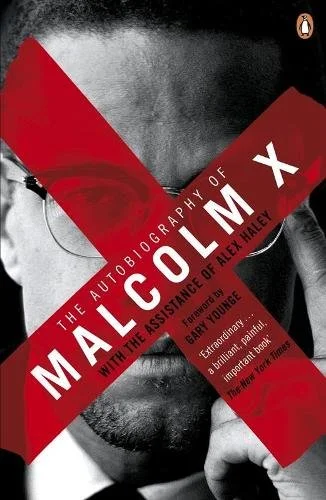The Autobiography of Malcolm X
There are some autobiographies that I feel everyone should read and Malcolm X’s autobiography sits firmly in that category. I struggle to see a world where all races will ever live in perfect harmony therefore this sits as required reading for me in understanding one of the key figures in race relations from the not so distant past.
I’m unsure how much the syllabus has changed since I left school and I’m aware that they have Black History Month now but Malcolm X was barely touched upon in my school education. I also think he’s often either misrepresented or at the very least cast with a single lens of the violent side of the coin to the more passive Martin Luther King Jr approach. Both figures to me still appear to stand largely misunderstood to anyone who hasn’t taken the time to study and understand their lives or viewpoints in full.
The film Malcolm X is largely based on the book so if you can’t read it then at the very least, I recommend watching the film. I think it’s important to understand the upbringing that moulded such a key figure in black history and also the experiences, adaptation and changes in his world view that took place over this life as he was exposed to challenging, enlightening and life changing experiences.
As seems to be the way with many figures taken earlier than they should have been he’s particularly prescient on the topic of how long he expects to live and the violent means by which his death would and inevitably did play out.
As the book is an autobiography it takes you up to Malcolm’s life nearing his death, however there are other biographies that continue the account of his assassination and subsequent findings on the responsible parties.
Malcolm X is for me a hugely important figure in not just black history but in world history so for that reason this is a highly recommended read from me.
Who’s it for?
This is a book for anyone with an interest in autobiographies or key figures from the past. For those with special interest in race relations, politics and the period of 60’s to 70’s US if you haven’t read it already then, it’s one for you.

